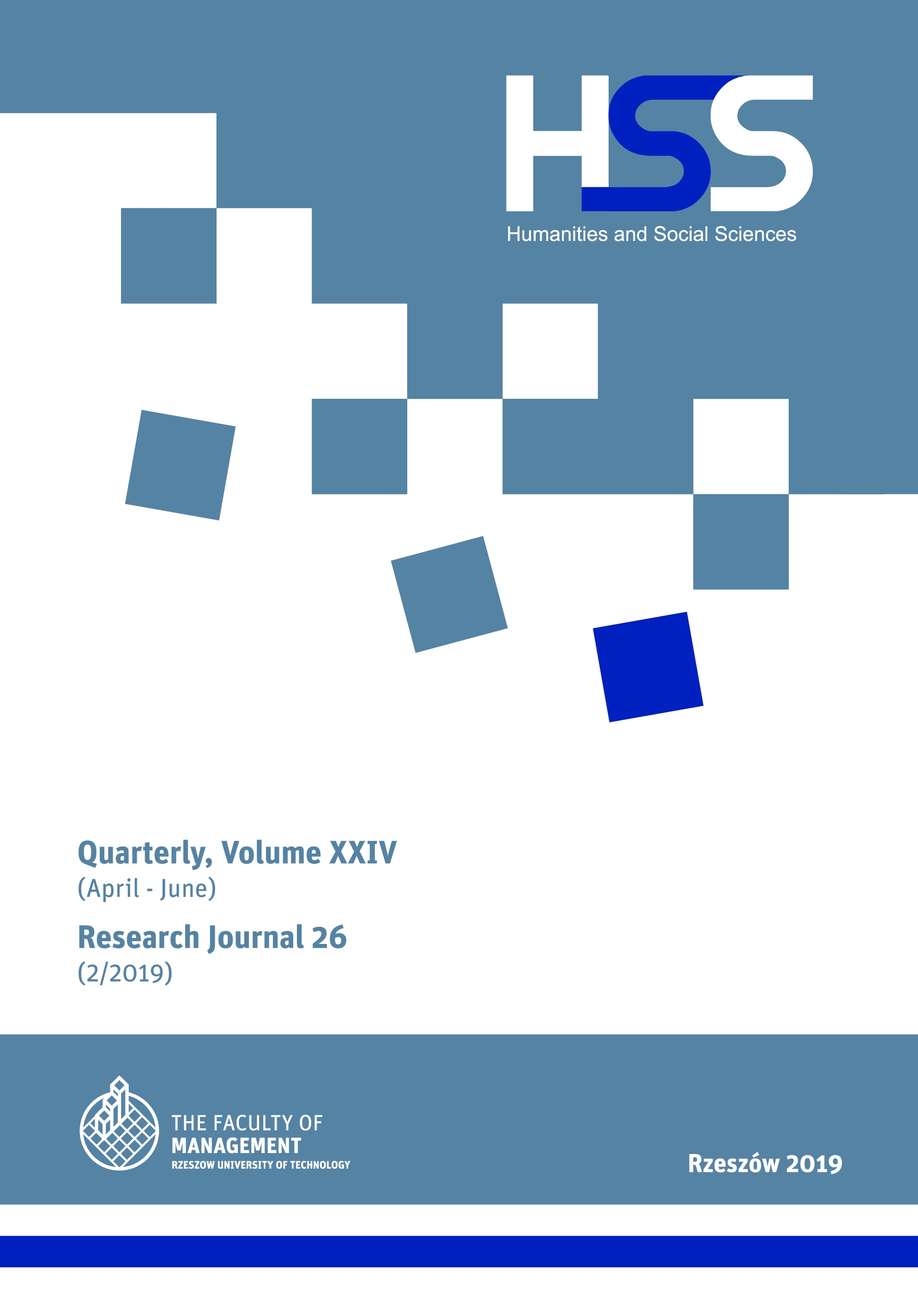Abstrakt
The purpose of the article is to indicate the role of foreign direct investment in ensuring the economic security of the economy receiving this capital. The concept of economic security is related to the economy as well as international and global perspectives.
In this article, it also comes from the assumption that the definitions of economic security today must relate to opportunities and threats to development processes. It is indicated that in the context of the guarantee of unhampered development, which is the effect of proper shaping of economic interdependencies of a given economy with foreign countries. In addition, the role of trade and international connections in this process is highlighted. Economic security in this approach is identified not only with the uninterrupted functioning of economies as a result of the inflow of FDI, but also with the assurance of a comparative balance with the economies of other countries .
The article mainly focuses on measurable aspects of FDI impact on the Polish economy. The data used for the analyzes came from the Central Statistical Office, National Polish Bank and OECD databases. While developing the subject, the method of analyzing literature positions, descriptive method and analysis of existing data were used.
Taking into account the perspective of economic security, it can be concluded that this means a relatively low degree of dependence of the Polish economy on foreign capital in the form of direct foreign investments. It causes that in periods of deteriorating economic situation on the global market or in the period of international economic crises, when the size of global flows of foreign direct investments are significantly reduced, these phenomena do not cause significant implications for the economic growth dynamics in Poland.
Bibliografia
Ancyparowicz, G. (2009). Bezpośrednie inwestycje zagraniczne w Polsce po akcesji do Unii Europejskiej. „Zeszyty Naukowe SGGW”, nr 77.
Bengoa, M., Sanchez-Robles, B. (2003). Foreign direct investment, economic freedom and growth: new evidence from Latin America. „European Journal of Political Economy” No 19.
Bertelsmann Stiftung (ed.). Shaping Globalization. New Trends in Foreign Direct Investment. 1. edition 2013, (e-book/ PDF).
Chowdhury, A., Mavrotas, G. (2006). FDI and growth: What causes what? „The World Economy” No. 29(1).
Czerwińska, E. (2001). Rola bezpośrednich inwestycji zagranicznych w Polsce, Kancelaria Sejmu Biuro Studiów i Ekspertyz, „Informacja”, nr 789.
Gorynia, M., Bartosik-Purgat, M., Jankowska, B., Owczarzak, R. (2006). Efekty zewnętrzne bezpośrednich inwestycji zagranicznych – aspekty teoretyczne i wyniki badań empirycznych. „Ekonomista” nr 2.
Gryz, J. (2013). Bezpieczeństwo państwa. Władza – polityka – strategia. Warszawa: Wyd. AON.
https://www.flandersinvestmentandtrade.com/export/sites/trade/files/attachments/FDI%20Report_EN.pdf [Access: 21.11.2018].
Kalata, A., Nowakowski, Z., Protasowicki, I. (2014). Determinanty bezpieczeństwa ekonomicznego Polski, [w:] Ilnicki M., Nowakowski Z., red., Współczesne wyzwania polityki bezpieczeństwa - wybrane zagadnienia. Warszawa: Towarzystwo Naukowe Powszechne S.A. https://www.researchgate.net/publication/263571152 [Access: 27.08.18].
Kłosiński, K.A. (2003). Konkurencyjność narodów [w:]. Kłosiński K.A., red., Losy świata, Lublin: Wyd. KUL.
—— (2006). Światowe determinanty bezpieczeństwa ekonomicznego [w:] Guz T., Kłosiński K.A., Marzec P., red., Bezpieczeństwo ekonomiczne państw. Lublin–Tomaszów Lubelski: Wyd. Polihymnia.
Kostecki, J. (2016). Wpływ czynników zewnętrznych i wewnętrznych na bezpieczeństwo ekonomiczne Polski. „Kwartalnik Naukowy Uczelni Vistula” nr 3(49).
Księżopolski, K.M. (2011). Bezpieczeństwo ekonomiczne. Warszawa: Dom Wydawniczy ELIPSA.
Mierzejewski, D. (2011). Bezpieczeństwo europejskie w warunkach przemian globalizacyjnych. Toruń: Wyd. Adam Marszałek.
Nowakowski, Z., Protasowicki, I. (2008). Bezpieczeństwo ekonomiczne jednostki a bezpieczeństwo ekonomiczne państwa, https://www.researchgate.net/publication/263559594 [Access: 27.08.18].
Misztal, P. (2011). Bezpośrednie inwestycje zagraniczne jako czynnik wzrostu gospodarczego w Polsce. Radom: Uniwersytet Technologiczno-Humanistyczny w Radomiu za: http://journals.pan.pl/Content/87336/mainfile.pdf [Access: 27.08.18].
Pach, J. (2001). Bezpośrednie inwestycje zagraniczne w świetle bezpieczeństwa ekonomicznego na przykładzie Polski w latach dziewięćdziesiątych XX wieku. Prace Monograficzne nr 309, Kraków: Wydawnictwo Naukowe Akademii Pedagogicznej.
Stachowiak, Z., Stachowiak, B. (2014). Kontrowersje i dylematy rozwiązania problemu bezpieczeństwa ekonomicznego w Polsce. „Ekonomia Bezpieczeństwa i Logistyka”, ZN AON, nr 3 (96).
Stawska, J. (2014). Inwestycje krajowe oraz bezpośrednie inwestycje zagraniczne w Polsce w świetle rozwoju polskiej gospodarki. „Studia Europejskie” nr 1.
Wolf, M. (2014). Shaping Globalization. “Finance & Development”, Sept. 2014, Vol. 51, No. 3.
Żukrowska, K., red. (2011). Bezpieczeństwo międzynarodowe. Przegląd aktualnego stanu. Warszawa: IUSatTAX.
(2016). Otwarcie. Konkurencyjność. Wzrost. Warszawa: SGH.
(2012). Harnessing globalization, czyli ujarzmianie globalizacji jako motor na rzecz rozwoju. Warszawa: Oficyna Wydawnicza SGH.


